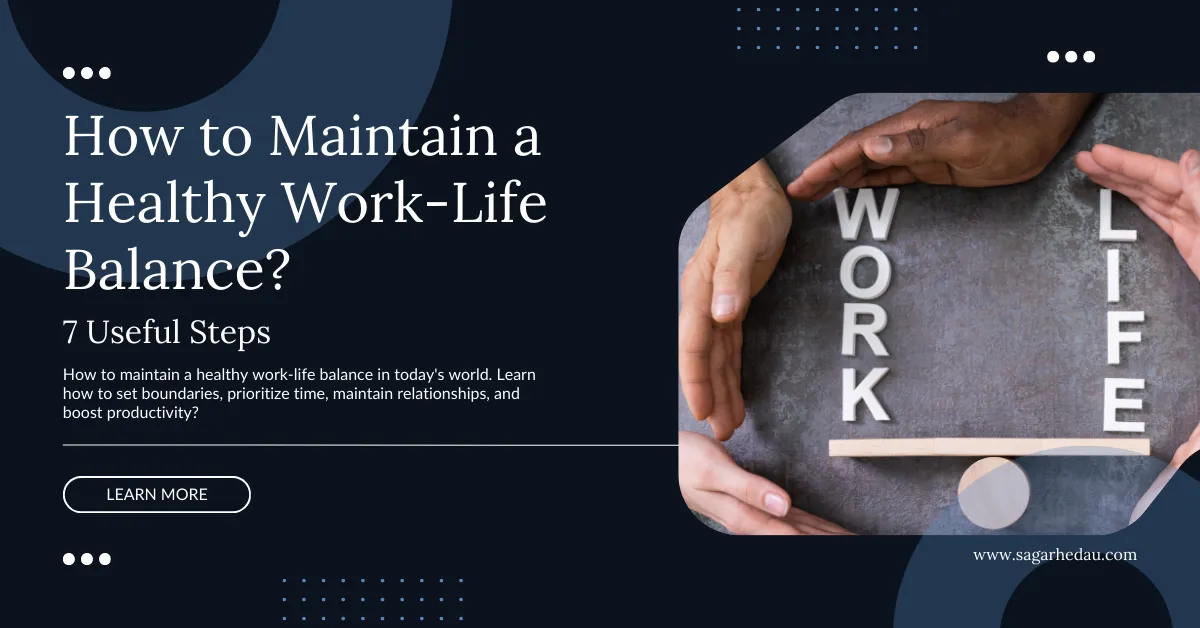In today’s dynamic and ever-evolving job market, finding the right career path can seem like navigating through a maze without a map. However, discovering a fulfilling career is not an elusive dream but an achievable reality with the right approach and mindset.
Whether you’re a recent graduate exploring your options or a seasoned professional looking for a change, we have curated seven effective strategies on “how to find your career path” to help you in every way to make a strong decision.
How to find your career path?
Self-Assessment
Before embarking on your career exploration journey, it’s essential to introspect and gain a deep understanding of yourself. Take the time to identify your passions, interests, and strengths. Reflect on past experiences, both personal and professional, to pinpoint activities that bring you joy and fulfilment.
Additionally, consider your skills, talents, and values that align with your career aspirations. Tools such as personality assessments, skills inventories, and values clarification exercises can provide valuable insights into your unique qualities and preferences.
Self-assess:
- Values: What matters to you in a job?
- Interests: What sparks your curiosity?
- Skills: What are you good at?
- Personality: How do you prefer to work?
Use online tools: Explore interests, skills, and personality. Research careers: Talk to professionals, read industry info. Consider lifestyle: Work-life balance, salary expectations. It’s a journey: Keep exploring as you grow and evolve.
Researching Industries and Professions
With a clear understanding of your strengths and interests, we can dive into researching various industries and professions to identify potential career paths. Utilize online resources, industry publications, and professional networking platforms to gather information about different sectors, job roles, and career trajectories.
Conduct informational interviews with professionals in fields of interest to gain firsthand insights into their experiences and the day-to-day realities of their jobs. By expanding your knowledge and exploring diverse opportunities, you can broaden your perspective and uncover hidden gems that resonate with your aspirations.
Industries:
- Use resources like CareerOneStop for industry reports (employment, salary, trends).
- Follow industry news for current events and innovations.
Professions:
- Read job descriptions on job boards for tasks, skills, and qualifications.
- Check professional association websites for career paths, standards, and networking.
- Conduct informational interviews for firsthand knowledge.
Additional Tips:
- Do a skills gap analysis to identify areas for development.
- Network on LinkedIn and attend industry events to build connections.
Setting SMART Goals
Once you’ve explored potential career paths, it’s time to set clear and actionable goals to guide your journey. Utilize the SMART criteria—Specific, Measurable, Achievable, Relevant, and Time-bound—to outline your objectives effectively.
How to find your career path with SMART goals? Break down your long-term career goals into smaller, manageable milestones, and establish a timeline for achieving them. Whether you’re aiming for a promotion, career switch, or entrepreneurial venture, having well-defined goals will keep you focused, motivated, and accountable throughout your career exploration process.
- Specific: Clearly define what you want to achieve. Instead of “get in shape,” aim for “run a 5K race within 6 months.”
- Measurable: Establish a way to track progress. For your running goal, you could track distance run each week.
- Achievable: Be ambitious, but also realistic. Consider your current skills and resources.
- Relevant: Ensure your goal aligns with your overall interests and values.
- Time-bound: Set a deadline to create a sense of urgency. This helps you stay focused and motivated.
Gaining Practical Experience
While research and self-assessment are crucial steps in finding your career path, gaining practical experience is equally essential. Consider pursuing internships, co-op programs, or volunteering opportunities in industries or roles of interest.
These experiences not only provide hands-on exposure to your desired field but also allow you to test your skills, build your network, and gain valuable insights into your career preferences and goals. Additionally, they can enhance your resume and make you more competitive in the job market.
- Land an internship in your target field.
- Volunteer for relevant organizations.
- Initiate personal projects to apply your skills.
- Find freelance work to build experience and a portfolio.
- Compete in industry competitions or hackathons.
- Shadow a professional to learn from their experience.
Networking Strategically
Networking plays a pivotal role in your career exploration journey, opening doors to new opportunities and insights. Actively engage in professional networking events, industry conferences, and online communities to connect with professionals and peers in your field of interest.
Leverage platforms like LinkedIn to expand your network, seek mentorship and gather advice from seasoned professionals. Remember that networking is not just about collecting contacts but building meaningful relationships based on mutual respect and reciprocity.
- Target: Connect with those who can help your career.
- Craft your intro: Research & personalize messages for genuine connection.
- Value over ask: Build relationships by offering help & insights.
- Go online: Use LinkedIn & professional platforms to connect.
- Attend events: Network & learn at conferences & meetups.
- Nurture: Stay connected with occasional messages & support.
Seeking Mentorship and Guidance
In your quest to find your career path, seeking mentorship and guidance from seasoned professionals can provide invaluable support and direction. Identify individuals within your network or industry who possess the knowledge, experience, and insights you seek.
Approach a career counsellor and express your genuine interest in learning from their expertise. A mentor can offer valuable advice, share their career journey, and provide perspective on your goals and aspirations. Don’t underestimate the power of mentorship in shaping your career trajectory and fostering your professional growth.
- Research them to see if they align with your goals.
- Find potential mentors in your field (alumni networks, professional organisations, LinkedIn).
- Craft a clear request – how they can help you, and what value you bring.
- Respect their time – ask for a short call to discuss mentorship.
- Set expectations if they agree (meeting frequency, communication).
- Be engaged – ask questions and show appreciation.
Embracing Continuous Learning
In today’s fast-paced and ever-changing job market, how to find your career path? Here in the dynamic world, continuous learning is essential for your career success and longevity. Embrace a growth mindset and commit to lifelong learning to stay relevant and competitive in your chosen field.
Pursue professional development opportunities, such as workshops, online courses, and certifications, to enhance your skills, expand your knowledge, and adapt to emerging trends and technologies. Remember that your career journey is a marathon, not a sprint, and it requires you to evolve, grow, and embrace new challenges along the way.
- Growth Mindset: Believe you can learn and improve through effort.
- Expand Horizons: Explore different perspectives and broaden your knowledge.
- Learning Routine: Set dedicated time for learning activities.
- Track Your Progress: Monitor your learning journey to stay motivated.
- Embrace Collaboration: Learn from others and share your knowledge.
Conclusion
In conclusion to “How to find your career path”, you need to assess many factors. By leveraging the above seven effective strategies you can navigate the complexities of the job market with confidence and clarity.
Remember to stay resilient, adaptable, and open-minded as you embark on your career journey, and you will unlock endless possibilities and opportunities for your professional fulfilment and success.















